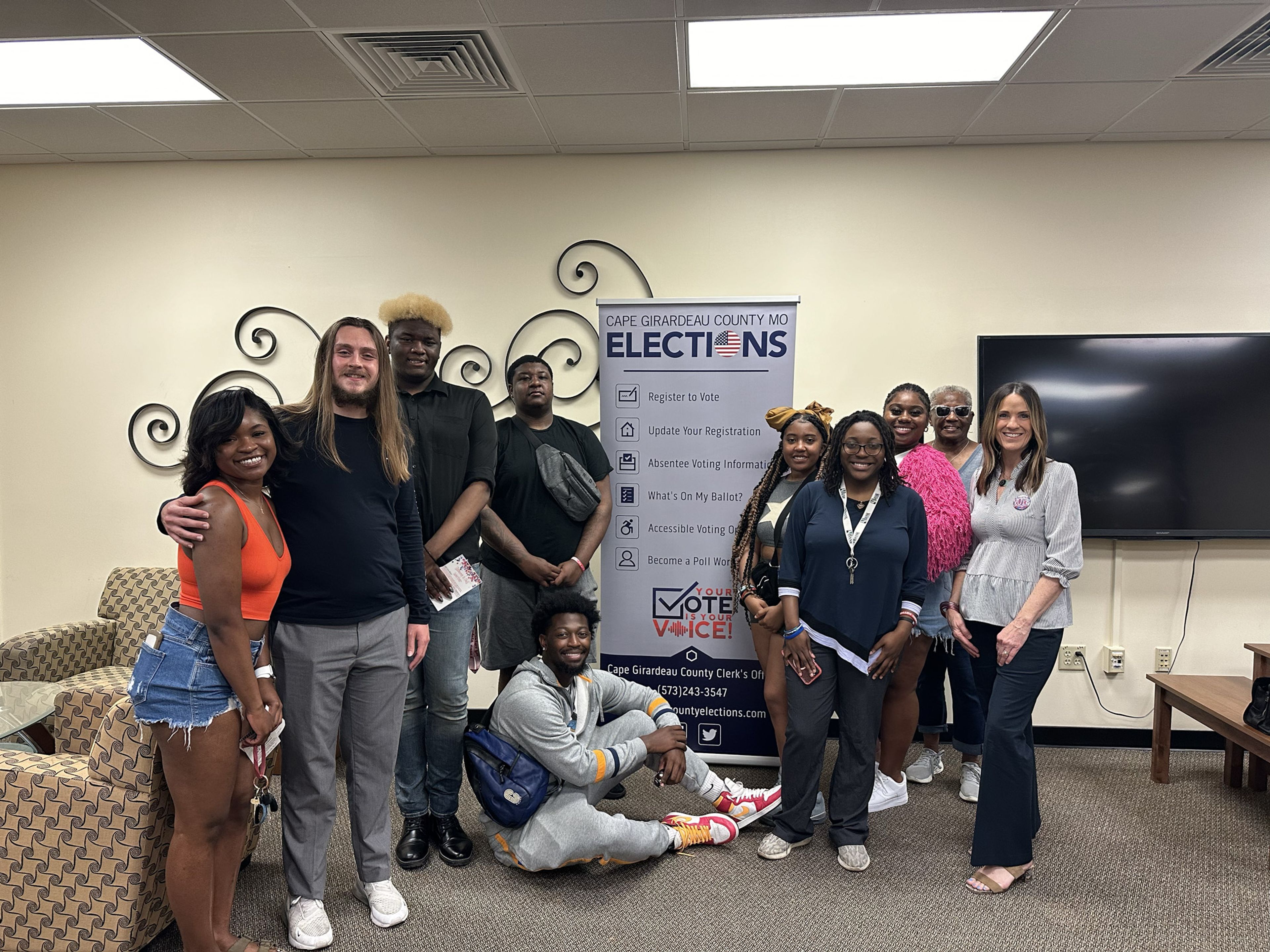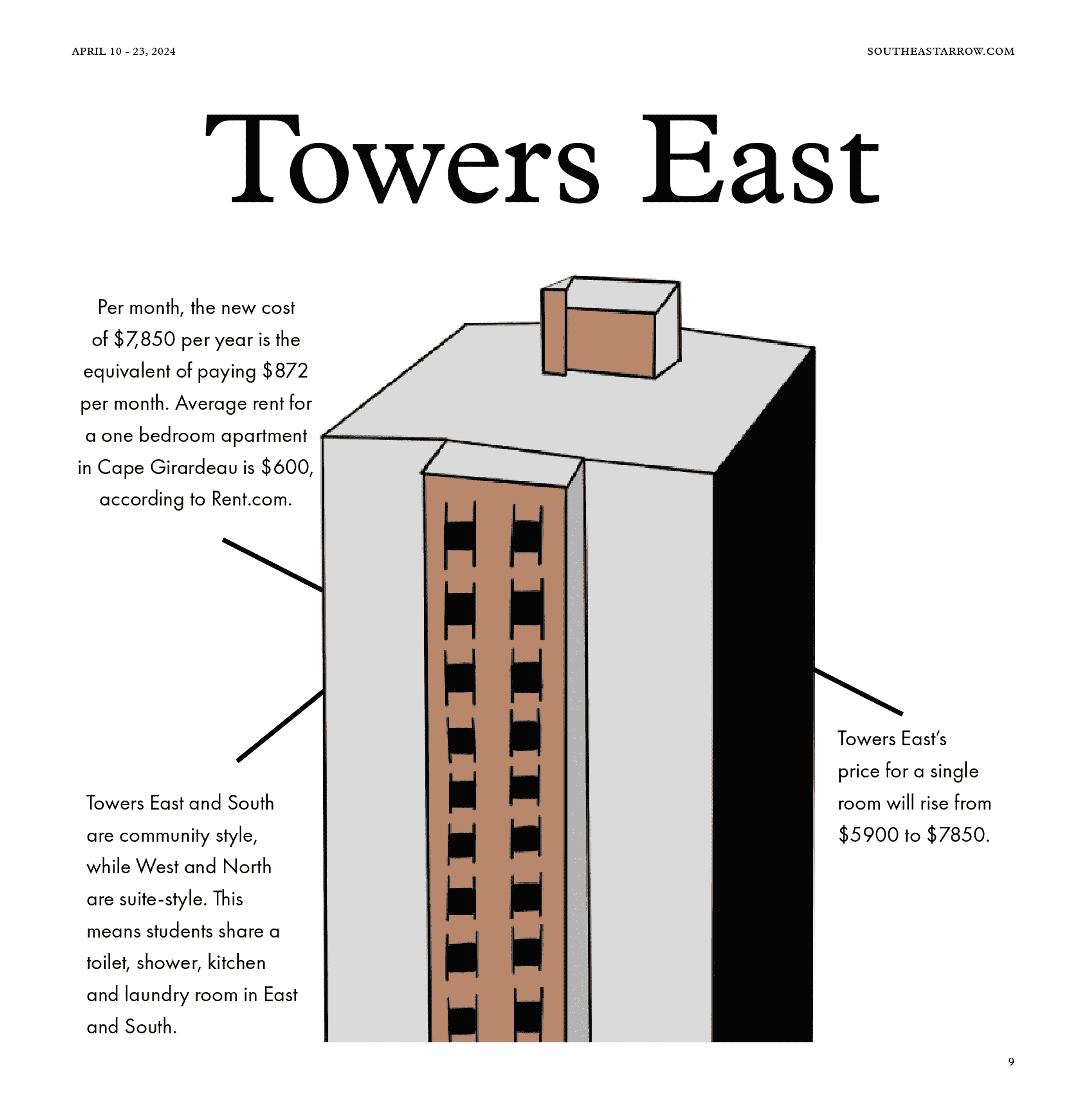Identifying what separates hip-hop and rap was the starting point for the discussion "Hip-Hop Feminism," presented by SELF (Sisterhood, Empowerment, Leadership and Femininity).
The event, which was held as part of Southeast Missouri State University's Martin Luther King Jr. Celebration, drew both men and women and the mixed turnout provided the basis for a thoughtful discussion that included a number of different viewpoints.
Southeast student Anna Burton initiated the discussion by sharing her thoughts on what hip-hop actually is, and what sets it apart from rap.
"When I think of hip-hop now I think of the culture behind it. Hip-hop is more lyrical and has a message and rap is more commercial and materialistic," Burton said.
"I think hip-hop is also a movement of self-expression," one attendee said. "I think of the East Coast. I think of Adidas, and break dancing and Run DMC and just a whole organization that was all about empowerment and having something to say versus just the bling bling and the Sing Sing. Hip-hop is deeper, it's spiritual."
Female hip-hop artists are empowered and intelligent and many cited Lauryn Hill, Queen Latifah and MC Lyte as good examples of what constitutes a hip-hop woman: an artist who breaks through barriers with powerful lyrics. These women stand in stark contrast to the more commercial rap artists such as Nicki Minaj who aim for fame through the exploitation of their sexuality and physical assets. The images of women shown in videos and conveyed through the lyrics of male hip-hop and rap artists differ as well.
Attendee Tara Myrick said hip-hop has evolved over time, and even though male artists have always talked about women in their lyrics, the words used to describe females have become more explicit over the past few decades.
"Back in the day you had Rick James with 'Super Freak,' and the first verse of that song was 'she's a very kinky girl, the kind you don't take home to mama.' Now it's just been taken to a whole different level. Now instead of 'she's a 'super freak' she's a 'ho.' Now they actually get to say the word," Myrick said.
Myrick and a number of those present agreed that the evolution of hip-hop has not necessarily been a positive one, as far as women are concerned, and young listeners have an obligation to pay attention to what the artists are saying.
"Do you all really listen to this stuff? Do you all really listen to the lyrics? I know a lot of people are quick to jump on the dance floor and I'm like 'you're not even hearing this.' But you've got the hook in your head. You're listening to the hook but you have no idea what you're even listening to as far as the lyrics." Myrick said.
Many of those present noted that much of the responsibility lies with the listeners, but one attendee pointed to the hip-hop industry for promoting artists who present exploitative and over-sexualized images of women in their music.
"I feel like it's the music industry. I feel like the female artists who want to be positive, that goes right out the window once they get signed (to a label)," one attendee said. "I've heard some Nicki Minaj songs from way back (before she was signed to a label) and she was not talking about what she's talking about now. So I feel like first it is the industry because they want to make money and sell songs. But we're partly responsible for that because those are the things we listen to and those are the CDs we buy."




